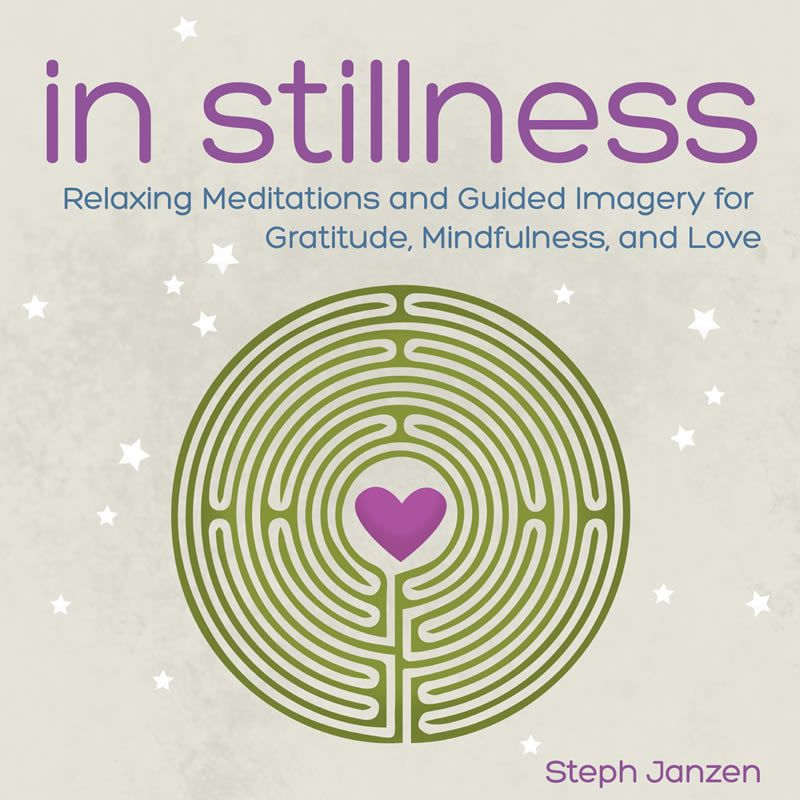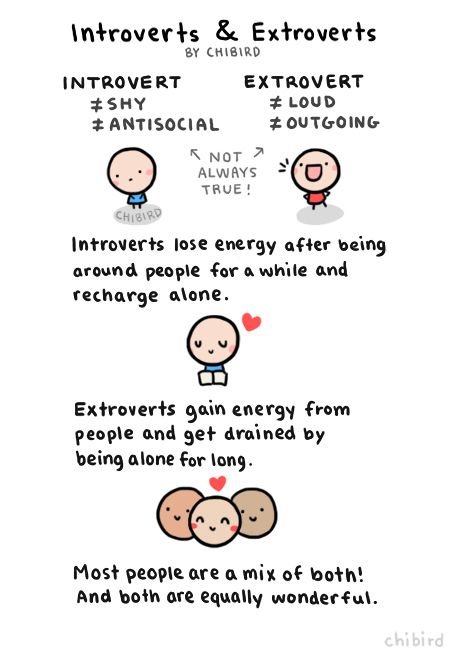How to tell someone no
How to say no to others (and why you shouldn’t feel guilty)
Jump to section
Why is it so hard to say no?
When you should say no
Why it’s important to say no
10 different ways to say no
Helpful tips on how to say no
How to decide when to say no
N.O. No. Two simple letters. One simple word.
But why is it sometimes so difficult to say no?
For many people, saying no is packed with guilt. Maybe you’re afraid of disappointing someone. Maybe you’re anxious to turn down your boss. Or maybe you’re a people pleaser.
No matter the reasons, learning how to say no is an important skill for your personal health and well-being. Our time and energy are precious resources that we should use wisely. And that means we can’t do everything.
Let’s explore how to say no in different situations and why declining certain requests is sometimes better than saying yes.
Why is it so hard to say no?
For some adults, the inability to say no stems from childhood. From an early age, children are taught to be polite and forthcoming. If a parent or teacher asked a child to do something, saying no was interpreted as a form of backtalk. In some cases, refusing an adult meant punishment or negative reinforcement.
However, this can cause issues around communication and self-assertion. Being raised to believe that saying no is bad makes it difficult for children to communicate their preferences. For some people, this inability to speak up for themselves continues into adulthood.
Another reason you may find it difficult to say no is if you doubt yourself. With imposter syndrome, you feel like you are not good enough to do the role that you are in.
Because of these feelings, you avoid saying no to others. You are afraid they will think you are unable to perform your roles and responsibilities. It can also make it hard to say no to yourself. You constantly feel that you have to say yes to prove to yourself that you can actually do your job.
There is also empathy and human nature to consider. We are social creatures that rely on human connection. Because of our need to belong, we are afraid to disappoint others or create conflict.
In a Cornell study, people were asked to carry out tasks that went against their ethics. Although they voiced their objections, half the subjects agreed to deface a library book. This was because saying no felt too difficult.
This kind of behavior shows our inherent desire to avoid conflict and keep the peace. But is it possible that our need to be liked can do us more harm than good?
Let’s find out.
When you should say no
If you struggle to say no, learning to identify signs of personal discomfort can help you know when to draw the line.
These five signs indicate you need to say no for your own good.
1. If you feel uncomfortable
Nobody knows your limits better than you do. If you are asked to do something that makes you feel uncomfortable, it could be a sign that you need to say no.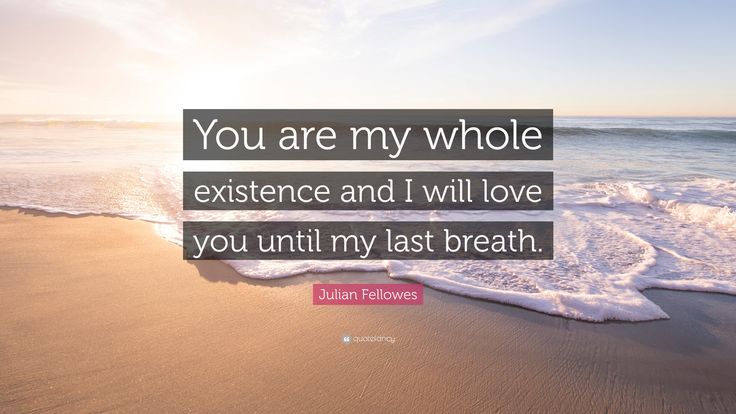 Take a moment to do some mindful breathing and listen to your intuition.
Take a moment to do some mindful breathing and listen to your intuition.
2. You feel guilty or obligated
In a work situation, it can be particularly difficult to say no. Your job may require you to oblige when superiors delegate tasks to you. But that doesn’t mean your time and energy are less valuable than theirs.
Use your self-advocacy skills to step up and say no. Your decision should not be based on guilt or obligation.
3. When you’re overloaded
If you are overloaded with work, say no to more tasks or projects. Wait until you’ve freed up some time and energy before you take on anything new.
If you are always working long hours, say no to working on the weekend. COVID-19 has drastically increased the number of employees working from home. Research shows that remote employees work longer hours and face a bigger workload than before the pandemic hit.
You may also feel especially overloaded around the holidays, as obligations from both family and work pile up. You likely need to wait until after the holiday season to take on anything new.
You likely need to wait until after the holiday season to take on anything new.
Keep in mind that saying no to yourself is just as important as saying no to others. Putting pressure on yourself only adds to your stress and anxiety. Make sure to prioritize your mental health and physical health to avoid burnout.
4. If the request crosses your personal boundaries
When someone asks you to do something that crosses your boundaries, it is important to stop the process in its tracks and say no. Your boundaries are worth standing up for.
5. If you are only saying yes to please someone else
While pleasing others is a natural incentive for performing tasks, it shouldn’t be the only reason you work hard. If pleasing someone else comes at the cost of your own happiness and well-being, it isn’t worth it.
Why it’s important to say no
Let’s go through a couple of reasons why it’s so important to say no.
- Do less to deliver more. Focus on one thing at a time, and do it well.
 You can produce much higher quality work when your energy is directed into projects you enjoy.
You can produce much higher quality work when your energy is directed into projects you enjoy. - Saying no can benefit your performance and career. Being assertive pays off. It gives you the freedom to pursue projects that are in alignment with your professional goals. And it keeps you on track with your future career plans.
- It’s important for your mental well-being. Our mental fitness suffers when we bite off more than we can chew. To maintain mental clarity, you need to say no to tasks you know you can’t handle.
- Prevent burnout. Burnout is becoming an increasingly big problem for modern-day employees. Working too hard for too long can cause a backlog of fatigue. This jeopardizes both mental and physical health.
- Build and maintain strong and healthy relationships. Clear boundaries and mutual respect are both indicators of a healthy relationship.
 You can keep the relationships in your life strong by setting boundaries and respecting others.
You can keep the relationships in your life strong by setting boundaries and respecting others. - Always saying yes can prevent you from achieving your personal goals. Even the most successful people know where their limitations lie. You can’t achieve your goals with minimal energy. Keep your dreams intact by taking care of your body and mind.
- Be realistic about your capabilities. Sometimes, willingness is not the issue. You may not have the right skills and abilities for what is being asked of you at work. This alone is a valid reason to decline a request.
- It’s an important part of self-care. Taking time to yourself allows for higher energy levels, more focus, and an improved state of mental health. Saying no to extra work when you know you need a break is a courageous act of self-care.
When it comes down to it, the reason saying no is so important is because it protects our best interests.
Whether it’s your physical health, mental health, or psychological health, saying no preserves your inner strength. It paves the way for holistic wellness.
10 different ways to say no
In theory, most of us can grasp the concept of why saying no is so important. However, actually forming the words in real life can be scary and overwhelming.
In moments like these, it can help to have some statements prepared that you can turn to for guidance. These 10 phrases can be used as substitutes for the simple “no” next time you find yourself backed into a corner.
- Sadly, I have something else going on.
- I have another commitment.
- I wish I were able to.
- I’m afraid I can’t.
- I don't have the bandwidth for that right now.
- I’m honored you asked me, but I simply can’t.
- Thanks for thinking of me. However, I’m not able to.
- I’m sorry, I’m not able to fit this in.
- Unfortunately, I already have plans.
 Maybe next time!
Maybe next time! - No, thank you, but it sounds lovely.
You do not necessarily owe someone an explanation about why you are saying no. In fact, sometimes, simply saying no and not going into further detail can help you to come across as calmer and more decisive.
Helpful tips on how to say no
Many of us could use a helping hand when it comes to being more assertive. Learning how to say no can be a lifelong journey, but everyone has to start somewhere.
- Practice saying no. Knowing when to say no takes time and practice. The more often you say no, the easier it will become. Practice assertiveness in all areas of your life until the habit is built into your lifestyle.
- Communicate your decision clearly. The clearer you are about saying no to someone, the better they will respond. If you are notably unsure about your decision to decline, it could be harder for others to respect your decision. Aim for clarity and simplicity.
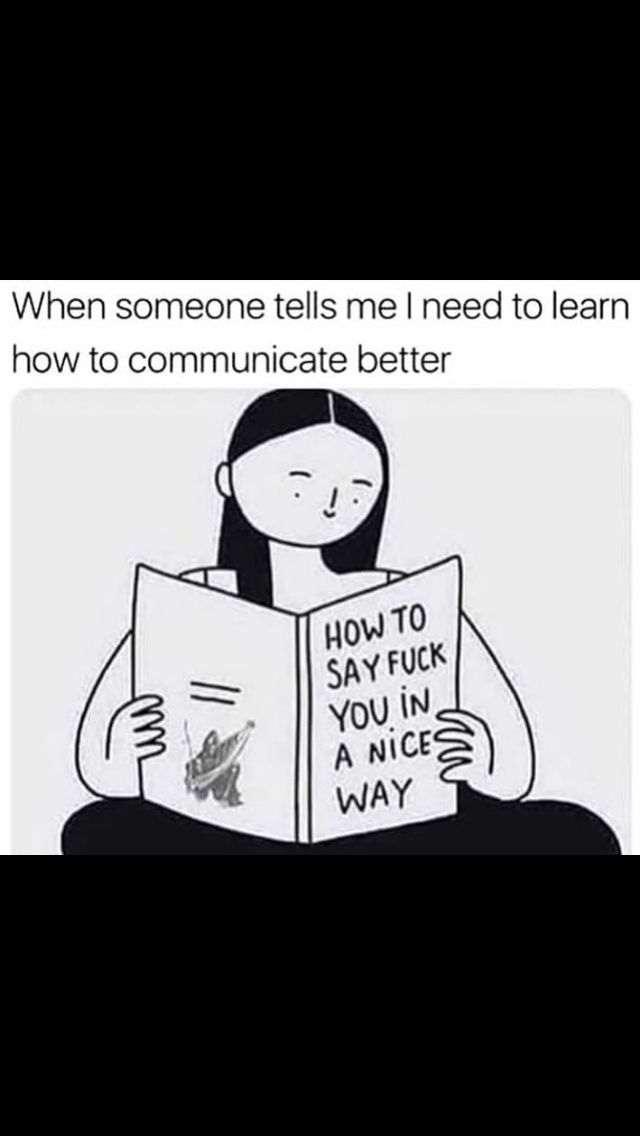
- Express gratitude for being asked. If someone asks you to do something and you respond with a no, a little bit of gratitude might help soften the delivery. Expressing thanks for being offered a new task will show others you care about their position, too.
- Take your time to make an informed decision. If you’re uncertain about whether you want to accept a new task, that’s okay. Take your time to consider the pros and cons, and then you can re-enter the conversation with a clear head.
- Be assertive but respectful. Not everyone who asks you to do something is trying to take advantage of you. They may just be desperate for assistance. If you can’t accept their offer, be respectful in how you communicate with them.
- Don't beat around the bush. Providing long-winded explanations about why you can’t do something rarely makes things easier.
 Instead, opt for a short, simple, and straightforward approach to saying no.
Instead, opt for a short, simple, and straightforward approach to saying no. - Understand the power of influencing tactics. Influencing tactics are strategies used to engineer a specific outcome. By gaining a better understanding of how influence works (particularly in the workplace), you can become a stronger and more assertive employee.
- Seek advice from others. Almost everyone can relate to the dilemma of people-pleasing. Ask your friends and family members if they have any tips. For professional advice, seek help from a mental health professional. They can give you expert guidance on how to say no the next time you feel put on the spot.
How to decide when to say no
Struggling to know if you should say no? It can help to have a mental list of questions to ask yourself when the right choice isn’t yet clear. There’s nothing wrong with taking some time to make the right decision.
The next time someone asks you to do something, and you’re not sure how to respond, use these questions as a template for gaining insight.
- Do I have the time and energy to do this?
- Will saying yes add value to my life?
- What makes saying “no” important to me?
- Is someone trying to bully or gaslight me?
- Am I doing this just to please someone else?
- Am I being used?
- Does saying no to this mean I can say yes to something else more important?
- Am I saying yes just because I am afraid of missing out?
- Does something more important require my attention right now?
- Do I need time to rest and recharge?
- What would need to change about this opportunity to make it a “yes”?
Learn how to say no so that you can say yes to well-being
We all need a little support sometimes. Especially when it comes to managing communication with others. But to be the healthiest, happiest version of yourself, you need to lay down boundaries.
Especially when it comes to managing communication with others. But to be the healthiest, happiest version of yourself, you need to lay down boundaries.
Whether you’re at home or at work, knowing how to say no is a skill you can benefit from for the rest of your life. Prioritizing your needs is one of the most loving things you can do for yourself.
If you need help learning how to say no, reach out to BetterUp. We help individuals realize their potential by building their skills, mindsets, and behaviors. Request a demo to learn more.
6 Effective Tips to Politely Say No (that actually work!)
Do you have a hard time saying no?
Here’s the truth: Saying no is hard.
There is a way to say no without being awkward, damaging relationships, or feeling guilty.
6 Tips to Help You Say No
Switch Out “No” for “Later”
If you’re just starting out, you don’t have to jump straight to no.
Saying no can be tough.
But saying later? Much easier.
Make your default response to any request “Let me get back to you.”
Here are a few pocket phrases you can use to extend your no:
- “Let me check my schedule and get back to you later.”
- “I’ll have to ask my spouse if we have anything going on later.”
- “Nice suggestion! Let me think about that first, and I’ll get back to you.”
- “Great, let me see if I’ve got to pick up my kid from school that day.”
If you’re at work, ask people to text or email you their request so you can get back to them.
Once they send you a follow-up, it is much easier to send them a polite reply saying that you’re unable to agree to their request.
Or if you’re asked to pick up a friend’s cousin’s niece from the airport, tell them you’re busy—but maybe offer them a schedule of when you’re free later.
Pro Tip: Don’t rely on your laters forever. And try not to lie. Once your laters are used up, saying later again can just cause you to seem untrustworthy in the long run.
And try not to lie. Once your laters are used up, saying later again can just cause you to seem untrustworthy in the long run.
↑ Table of Contents ↑
Rehearse Your No
Unfortunately, you might not always have the luxury of saying no to someone over text or email at your own convenience.
Sometimes, these invites or requests happen spontaneously and in person, requiring an answer immediately. To prepare for these situations, it’s useful to rehearse your noes beforehand.
- “Thanks so much for the invite, but I’m really trying to focus on my work these days, so I’m gonna have to say no.”
- “I actually have a lot on my plate right now, so I can’t help you out here. I appreciate that you thought of me, though! Good luck on getting it done.”
- “I’m sorry, but I told myself I really have to go to the gym tonight. Actually, I’ve vowed to go to the gym consistently so I hit my New Year’s Resolution—I hope you can understand.”
If you’re afraid of coming off as robotic or unnatural, it helps to rehearse these lines in front of a mirror.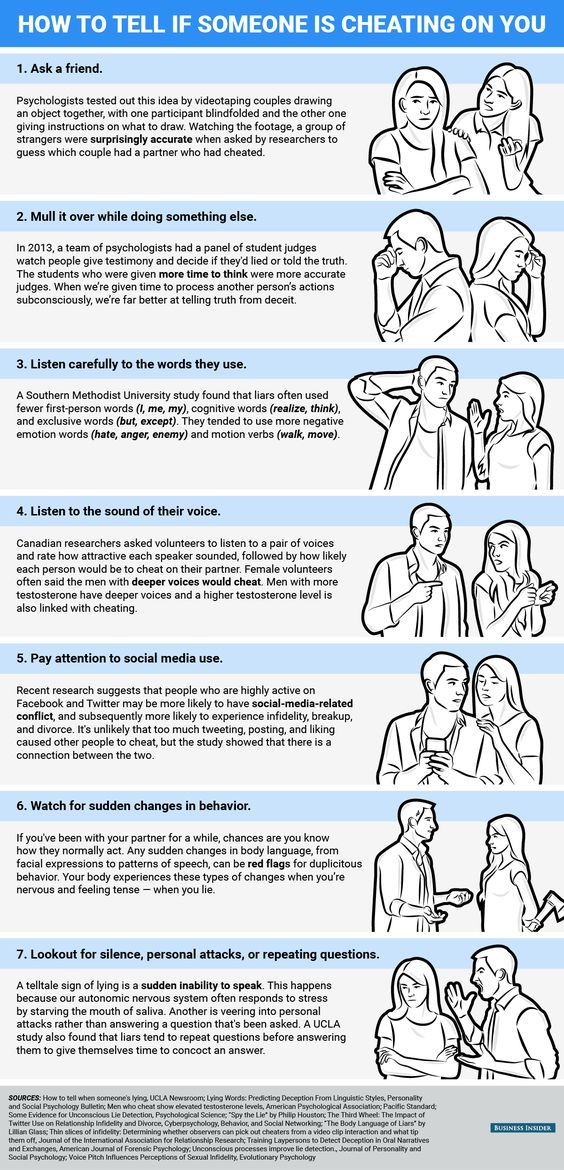
Or, if you can, get a friend or family member to do some fun role-playing with you!
↑ Table of Contents ↑
Don’t Offer an Explanation
Offering an excuse may seem like the polite way to decline a request, but it sets you up for an awkward situation.
Here are a few examples:
- You decline someone’s invitation to go out for coffee because you already have plans on the day they requested… then they ask you what day works best for you.
- You tell someone you can’t go to a party because you have no one to watch the kids… they offer to let you bring your kids.
- You apologize for not being able to help someone with a project because you’re working toward a major deadline… they reply that they’d love to have your help once you’re finished with your current project.
No matter what excuse you offer, people who are determined to get you to say yes can—and WILL—come up with a way to reel you in.
But the solution doesn’t require an entire fisherman’s tool kit to score. In fact, I want you to be more like a nimble spearfisher instead.
Here’s what to do in 3 steps:
- Thank them for the offer.
- Tell them you can’t agree.
- Offer no explanation.
Realize you don’t owe anyone an explanation.
Of course, being blunt with your no doesn’t mean being rude. Even if you don’t offer an explanation, you can still soften the blow by being polite and appreciative.
For example, instead of a curt, “No, I can’t do that,” you could say, “I’m really sorry, but I just don’t have the bandwidth to take this on. I appreciate that you thought of me and best of luck!”
↑ Table of Contents ↑
Do Offer An Alternative
If the person asking you for something is someone with who you want to maintain a positive relationship with, you can lessen the impact of your no by offering an alternative.
For example:
- If someone wants you to collaborate with them on a project, introduce them to someone else who might be interested.

- Your new friend invites you to a bar, but loud places and drinking aren’t your thing. Ask them if they want to grab coffee or do another activity instead.
- An eager young employee in your office offers to help you with an important project, but you fear their involvement would slow down progress. Ask them if they want to work with you on a lower-pressure project instead.
The goal is to offer a compromise so they don’t take offense to you saying no, and you don’t feel guilty for turning down a request that would add unneeded stress to your life.
Win-win!
↑ Table of Contents ↑
Use “No” Body Language
Does your body say yes or no?
Depending on what you look like, your body can give away immediate answers even before you speak.
After all, according to Darioly and Mast, about 65 to 90% of our communication is nonverbal.
So even before you open your mouth to say no, try saying no with your body:
- Turn your torso away.
 Imagine someone you really dislike is trying to hug you—and this would be exactly the thing you’d want to do. Turn your torso so you’re not facing them. Whatever you do, use your body to signal no!
Imagine someone you really dislike is trying to hug you—and this would be exactly the thing you’d want to do. Turn your torso so you’re not facing them. Whatever you do, use your body to signal no! - Cross your arms. To further cut off communication, close off your chest by crossing your arms. This is a naturally defensive and unfriendly posture we take when we feel “guarded.”
- Point your toes away. Notice a pattern? Our feet tend to point toward where we want to go—so point them away to signal your interests lie elsewhere.
Once you signal no with your body, your potential asker may get the message nonverbally. If not, your body will make it a lot easier for you to say no too.
And if you want to read up more on how you can close up your body language, read on! 16 Essential Body Language Examples and Their Meanings
↑ Table of Contents ↑
Slay the Procrastination Dragon
A large part of why it’s hard to say no is likely because you’re a big procrastinator.
Or you get distracted with things that don’t fulfill your true purpose.
Why? Because if you have a hard time saying no to others, you likely have a hard time saying no to yourself:
- Should I go out and spend all day with my friends, when I should really be studying? Sure!
- Should I eat this whole pint of ice cream, even though I’m super full? Why not?
- Should I delay this project, even though it’s due tomorrow? It won’t hurt much!
Can you relate to giving into these time-wasters?
You see, the Procrastination Dragon is a fearsome monster that thrives on wasting time—and the only way to stop it is to slay it with your sword… and that sword is named NO.
So here’s a fun exercise to do:
- Every night before you go to bed, name 3 time wasters you wanted and gave in to that day. Take a look in the mirror and say these things. Here’s one of mine: “I want to spend my lunch break watching funny YouTube videos instead of preparing for my upcoming meeting.
 ”
” - Now, after you say these things, tell yourself NO.
- Repeat this as many times as you need to be effective.
By telling yourself no, you condition yourself to accept no as part of your reality—and saying no to others becomes that much easier.
↑ Table of Contents ↑
Bonus Tip #7: Ask vs. Guess Culture
Have you ever heard of “ask vs. guess culture”?
What is the ask vs. guess culture?The “ask vs. guess culture” is a term that describes two different ways that cultures or people use to interact with one another. In the ask culture, people are typically described as direct and more open to bluntly asking yes or no questions. In the guess culture, individuals rely more on subtle context clues and shy away from being so direct.
People who lean toward the ask culture typically face more rejection and disappointment since they always ask questions, instead of “guessing” what the other person thinks.
For example, if they don’t clearly understand a procedure, they may ask for further clarification from the supervisor, instead of relying on their “gut feeling. ”
”
Askers are naturally better at saying no than guessers. Since they ask so many yes/no questions themselves, they’re much more used to hearing no and moving on.
People in the guess culture, however, tend to shy away from the verbal no, since they rely on nonverbal cues much more.
If you tend to have a hard time saying no, it’s likely you belong in the guess culture.
Here are a few examples of how an asker and guesser might interact:
Two Askers:
- A: “Hey, can you finish the video edits by tomorrow?”
- A: “No, I don’t think that’s possible. I’ve got too many tasks lined up.”
When two askers converse, they’re direct. They don’t leave any room for guessing because they answer with yeses and nos and expect a yes or no answer in return.
Asker to a Guesser:
- A: “Hey, can you finish the video edits by tomorrow?”
- G: “Uhh, can’t you see I’m a bit loaded here? Don’t you know how many tasks I’ve got lined up?”
- A: “Sorry! I just wanted a straight yes or no answer.
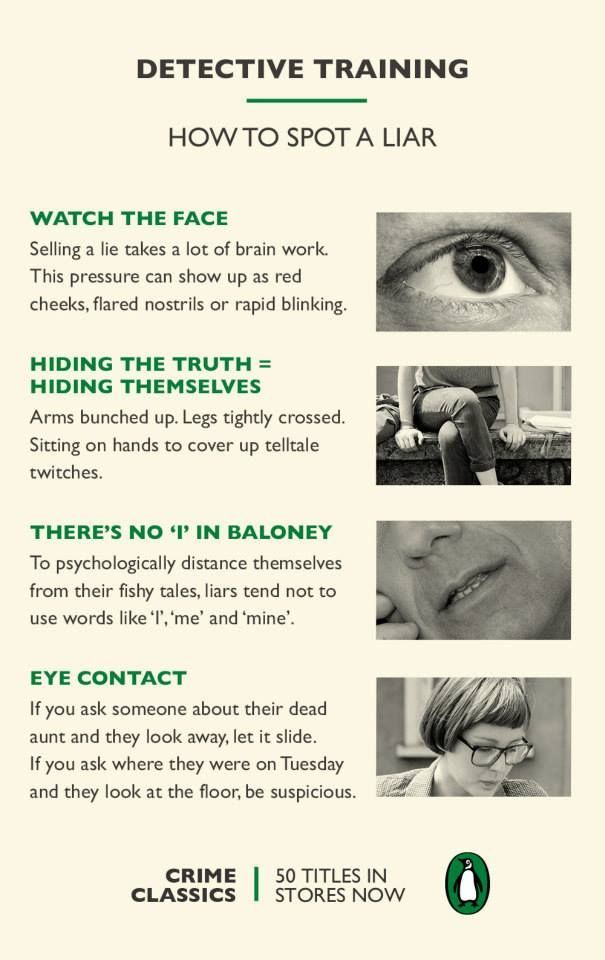 ”
”
When an asker converses with a guesser, there might be more room for miscommunication. The guesser might feel offended that the asker is so blunt or unaware of context clues.
And, the asker might be wondering why the guesser can’t give them a straight answer or thinking that the guesser wants the asker to “read their mind.”
Guesser to an Asker:
- G: “Hey, are you busy right now?”
- A: “No, what’s up?”
- G: “If you’ve got time can you get those video edits to me?”
- A: “Sure! I’ll get it done as soon as I can.”
- G: “Thanks!”
As you can see in this scenario, the guesser doesn’t ask directly. They might soften the question by using a preliminary ask, such as “Are you busy?”
Then the guesser might typically ask their question but avoid imposing any direct deadlines—even if they want something done by tomorrow, they may not explicitly state their needs.
↑ Table of Contents ↑
Why Is It So Hard to Say No?
Why are we all people pleasers? Why can’t we prioritize ourselves? Why do we feel stomped on?
Besides our “ask vs. guess culture” differences, let’s take a look at some more general reasons.
↑ Table of Contents ↑
We evolved to cooperate
OK, let’s admit it. You like the company of other people.
Maybe not everyone, but you sometimes get lonely if you isolate yourself and feel the need to interact every once in a while.
That’s perfectly normal since we’re all sociable creatures!
Fine-tuned by millennia of natural selection, we as a species have evolved with more or less a built-in desire to avoid conflict, keep the peace, and help out others… even if it comes at our own expense.
Helping out others with no immediate benefit (or even harm) to ourselves is known in the world of evolutionary biology as reciprocal altruism.
That’s when animals (including humans!) do things to temporarily lower their own evolutionary fitness while improving someone else’s, with the expectation that the favor will be returned at some point.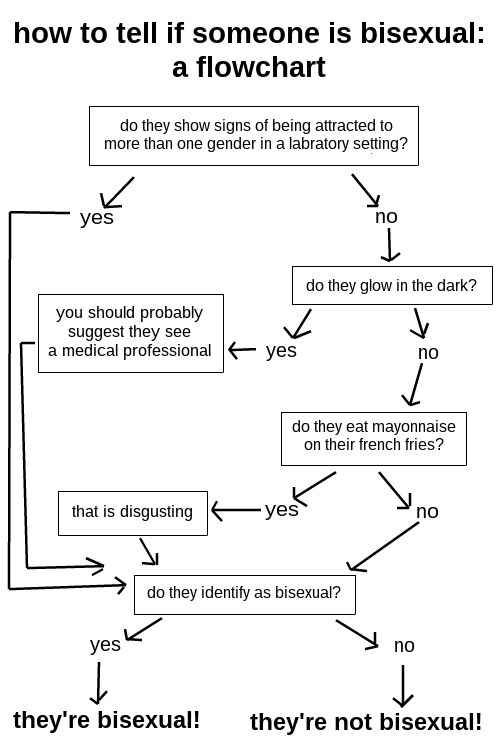
Reciprocal altruism is just one piece of a larger puzzle that seems to suggest that cooperation and social harmony, not competition, were the primary drivers for the advancement of our species.
In other words, we literally got to where we are as the most intelligent species on the planet by scratching each other’s back and getting ours scratched in return.
Nice!
So saying no to someone is, in almost any context, a pretty clear way of indicating that you don’t want to cooperate.
Combine this with the idea of reciprocal altruism, and it becomes pretty clear why so many of us can’t help but instinctively say yes to everything that’s asked of us.
↑ Table of Contents ↑
We want to be liked and accepted
In addition to cooperation, another fundamental component of evolutionary fitness is social acceptance and belonging.
Naturally, saying yes to others is a great way to gain acceptance and shield ourselves from social rejection.
However, a person’s desire to seek acceptance can vary greatly among the population, depending on a multitude of factors, all of which can influence your propensity to be a yes man (or woman!).
Perhaps the most straightforward predictor of one’s need to seek acceptance is self-esteem.
According to the “sociometer theory,” self-esteem is a measurement of our cumulative experiences of acceptance (and rejection) in interpersonal relations and interactions over time.
In other words, our self-esteem is directly correlated with our life experiences.
There are ways you can increase your self-esteem, but a large part of it is molded from our past and dictates our propensity to be yes people.
So those with low self-esteem will be more likely to exhibit people-pleasing behaviors, including being unable to say no to others.
Then there’s your attachment style, one of the most influential concepts in developmental psychology.
According to attachment theory, the way we’re raised by our parents can lead to the development of four main attachment styles in childhood (secure, ambivalent, anxious, and disorganized), which can go on to have a lasting and profound impact on the way we form relationships with others when we’re older.
Children with anxious attachment styles (i.e., ambivalent and avoidant, which generally form as a result of neglectful, careless, or inconsistent parenting) tend to grow up struggling to form relationships with others.
To outsiders, they may come across as needy, insecure, and—most relevant to our topic—desperate for validation and acceptance.
↑ Table of Contents ↑
We don’t want to hurt others’ feelings
Have you ever laughed at a joke when it clearly wasn’t funny? (“Dad, please stop with the jokes already.”)
On the flip side of desiring acceptance is the desire to make others feel accepted.
While many of us struggle with saying no, it’s also true that asking others for favors can be intimidating too, primarily because of the fear of rejection.
Indeed, a 2016 study found that people have a tendency to heavily overestimate the chances of a stranger saying no to a random request like using their phone. In reality, people are a lot nicer than we think—or, like you and I, they just have trouble saying no…
Whatever the case, we tend to have an empathic understanding of the fear of rejection, often leading us to say yes to spare their feelings.
↑ Table of Contents ↑
We don’t know how to stand up for ourselves
Growing up, most of us are taught to be respectful and agreeable:
- “Don’t question authority.”
- “Keep quiet and listen.”
- “Follow the rules.”
It can become difficult to recognize when we’re sliding down the slippery slope from respecting others to not respecting ourselves.
When you constantly say yes to everybody, you set yourself up for exploitation.
People will see you as an easy target, a pushover, and start taking advantage of your agreeableness.
Take, for example, a slacking colleague at work who asks for your help completing a task, knowing that you’re a diligent, productive employee.
You say yes, of course, because why wouldn’t you? Then he comes again. And again, and again, without offering anything in return, sapping you of the time and energy to continue doing your own work to the best of your ability.
Often without even realizing it, we get used and abused because we just don’t know how (or when it’s appropriate) to stand up for ourselves.
↑ Table of Contents ↑
Why You Should Learn to Say No
As we learned earlier, many of us have a hard time saying no in part because it’s evolutionarily ingrained in us. But just because something is the way it is, doesn’t mean it ought to be.
Don’t take it from me, though.
Steve Jobs once said:
But you don’t have to be the CEO of Apple to harness the power of no.
Here’s why you should:
↑ Table of Contents ↑
Saying no frees up time for yourself
This one’s pretty obvious, but there are only 24 hours in a day, and most of us have so much we want to do and accomplish with that time.
Whether it’s striving toward professional ambitions, working on personal passion projects, or even just finding time to rewind and relax, being constantly bombarded with tasks that help other people meet their goals doesn’t exactly help YOU.
Sure, you can help others…
But if you don’t make yourself priority #1, who will?
↑ Table of Contents ↑
Saying no teaches you to step out of your comfort zone
Like talking to strangers, taking cold showers, or giving an impromptu speech at a social gathering, saying no is an inherently uncomfortable thing to do.
And that’s exactly why you should do it.
Self-help gurus have raved about the benefits of stepping out of your comfort zone for time immemorial, and for good reason:
When you routinely do things that are difficult, you’ll slowly build up the courage and confidence necessary to take on bigger obstacles in your life.
This means saying NO to fear and saying YES to courage.
When you say no, you’ll find that learning to do so will directly translate to an easier time in all other areas of your life… especially if you’re an awkward people pleaser like I was.
Things like asking your boss for a raise, asking your crush out (or, conversely, dumping someone), or giving someone negative but constructive feedback all become just a tad bit easier.
We are, at our core, social creatures, so invest in your social savvy and you will reap the dividends!
↑ Table of Contents ↑
Saying no teaches you how to be assertive
The world values people who take control, speak their minds, and are vocal about their needs and desires.
After all, if you want to create real change, you must vocalize your idea first.
This is true everywhere from the corporate world (assertiveness is a strong predictor of career advancement) to school (every group project needs someone to take the reins) to sports (great players need to be assertive to lead) to even your interpersonal life (imagine how annoying social outings would be if everyone in the group just said, “I’m okay with anything; you choose!”) and everything in between.
Consider saying no as the training wheels for developing assertiveness!
↑ Table of Contents ↑
Saying no isn’t as bad as you think
Lastly, it’s important to recognize that many of the reasons that make it difficult for you to say no in the first place (e.g., being disliked or hurting the other person’s feelings) are mostly in your head.
Sure, there’s always going to be the odd person who’s overly sensitive and takes things the wrong way, but most well-adjusted people are used to rejection. It happens to the best of us in every facet of life, so what’s one more?
If anything, it might even make them respect you a little more… particularly if you were being taken advantage of before.
And if you’re trying to say no in a particular scenario, here’s what to do:
↑ Table of Contents ↑
How to Politely Say No to a Job Offer
This one stings, but being desired by an employer you ultimately don’t want to work for can be painful—you don’t want to get their hopes up, but you’re afraid of saying no and hurting their feelings.
The first step is not to get too worked up in the first place.
But if you’re past that stage, you might want to try one of these nos:
- “I realize I want to work for you, but I don’t think I have the capacity at this point in time to give it my 100%. There are just too many personal circumstances I’m dealing with right now.”
- “I’ve decided to go with a different employer for now; however, I appreciate the time and effort you put into the hiring process.”
- “I’ve ultimately decided my commitment to my current employer is much stronger than I’d realized.”
- “After taking some time to think about it, I’ve come to the conclusion that I don’t think we’d be a great fit. I’m looking for a different type of job, but I wish you all the best in the future!”
↑ Table of Contents ↑
How to Say No to a Date
Dating can be rough.
Luckily, you don’t have to say yes to every single one of them.
… Or do you?
If you’re struggling to find dates, then perhaps saying yes is the way to go. But if you know exactly who you’re looking for, and that guy or gal just doesn’t fit the billm, then you need a polite rejection. Add on the following in bold to make it a bit more gentle:
- “I’m just not looking for a date right now, but we can just hang as friends instead.”
- “I’d rather focus on my work/school, as it’s my #1 priority. However, we can still study or collab together!”
- “The timing is not good for me, as I just left a relationship not too long ago. But we can still keep in touch!”
- “Sorry, I have strong feelings for someone else right now. But I’m having a house party soon—why don’t you invite your friends, and we can all have fun?”
- “Sorry, I don’t want to ruin what we have.
Let’s continue being friends!”
↑ Table of Contents ↑
How to Say No to a Friend Who Wants to Stay at Your Place
Have you ever randomly received a text from your high school friend that went something like this:
“Hey, Vanessa! I’m in your city right now. I know we haven’t met in over a decade, but can I stay at your place?”
Uh-oh.
If you’re not feeling as generous as a CouchSurfing host, you might want to implement one of these polite letdowns:
- “Sorry, there’s not enough space in my home right now.”
- “Oh! I’m actually going to be out of town during this time to visit my relatives/for a work meeting/etc.”
- “I just asked my spouse, and they said they’re really busy these days and would rather avoid having someone over—sorry about that!”
- “We’re actually in the middle of renovating the home right now! There’s so much stuff around that there’s no room to fit an extra person.
I hope you can understand!”
- “I actually have my stepparents sleeping over this week!”
- “My house is as small as a cardboard box—no more room left here!”
↑ Table of Contents ↑
How to Say No to Your Boss
Nobody wants to say no to their boss, but sometimes you have so much on your plate that piling on more work would seem impossible.
In that case, here’s how to say no without going overboard:
- “I wish I could help you, but I have a rush project right now, and I’m trying to meet the deadline. I just don’t think I’d have the capacity right now.”
- “In that case, can you give me an extra couple days to finish my other X project while I prioritize your task?”
- “I’d love to help, but I already made plans with my family tonight.”
- “I just feel really burned out now; perhaps after a good night’s rest, I’ll be more productive later.”
- “I’ve really got to prioritize the Y project.
If it’s not critical, can you please hold off on other tasks so we can prioritize this one for now?”
- “I might be able to glance over it quickly, but I don’t think I’ll have the time to put in concentrated effort until next week.”
- “This task sounds really interesting—I’d love to get to it! But I don’t think I can meet your tight deadline. Could we perhaps push it back to a later date?”
↑ Table of Contents ↑
Saying Maybe Is Okay Too!
If you haven’t noticed already, saying maybe isn’t exactly saying no.
Sometimes, you might really just need time to think over something.
Maybe you really want to help out on a project because it’ll benefit you too, but you’re not immediately sure how it would fit into your schedule.
Maybe you really do want to go out to a social gathering or meet an acquaintance for coffee, but you don’t yet know if your work schedule can accommodate it.
In cases like these, it’s okay to get back to them after you mull things over. Be honest and say, “I’m interested, but let me get back to you.”
The key here is to make sure you actually get back to them.
Too many people use maybe as a gutless way of saying no before ultimately either forgetting about the plan or pushing it off again and again until the other party finally gets the hint.
Make no mistake: if you do this too often, people catch on, and it’ll sour their perception of you way more than if you had just said no the first time.
↑ Table of Contents ↑
Wielding Your Sword and Shield
If you’re looking for even more say-no knowledge, check out this amazing TED Talk from entrepreneur and public speaking expert Kenny Nguyen.
With his analogy of “no” being the shield to the sword of “yes,” Nguyen argues that we should learn to fight strategically in the battle of life. When do we block versus strike?
Learning to wield our shield effectively, according to Nguyen, will result in sacrificing opportunities in the short term for even greater opportunities in the long term. As powerful of a warrior as you may be, you won’t last long if you don’t know when to block!
Now…
Believe it or not, you can prioritize yourself while still maintaining social harmony.
The truth is, most well-adjusted people can take a no. They won’t instantly dislike you and they won’t be offended, especially if you’re respectful about it.
So challenge yourself to put yourself first. Learn to say no, and see how drastically your life changes.
And for further reading, take on this amazing article to really be more confident: How to Be More Confident: 11 Scientific Strategies For More
6 Ways to Say No without Guilt | by Lera Petrosyan
Photo source: PixabayWhat is easier: to say "yes" or to refuse a request? Saying “no” is sometimes very difficult, and it doesn’t matter if it’s a close friend or a casual acquaintance.
Fear of destroying relationships, being branded as an egoist or offending a person pushes to agree to any proposals. Even though we know exactly what we want or should be doing, we make time for other people's requests, unwanted invitations, or meaningless tasks.
In order not to wallow in unwanted obligations, not to be a guest of every empty event and not to suffer every time, agreeing to the next request, you need to learn to firmly say “no”.
How? Eric Barker turned to research and identified six points that will unburden your life of unnecessary “yes”.
You are asked for a favor, and it seems to you that if you say "no" you will be disliked. And you give in, even if you didn't want to at first. Surely everyone is familiar with this situation.
If you say “yes”, you will be disappointed in yourself, angry or offended by the applicant. Even if you had the opportunity to refuse him.
Research shows that such situations not only create a cycle of negative feelings, they actually damage relationships. Yes, being "too nice" is also a problem.
“The desire to avoid conflict is not an indicator of a successful relationship.
Rather, it is a serious symptom of a dysfunctional relationship. It is better to recognize that the emergence of negative emotions between people is a natural process that you must learn to deal with effectively ... If you cannot express negative emotions, the relationship loses sincerity. — Harriet Breaker, The Desire to Please: Healing People from Compliance Syndrome
How can you say “no” without feeling guilty? Experts have found the answer and offer six ways to do this.
Moments when a person gets angry at your "no" stick in my memory like neon billboards. However, people constantly say “no” and do not suffer any serious consequences after that. The water in the sea didn't turn to blood, and the frogs didn't start falling from the sky. The petitioner just shrugged his shoulders and said, "Good."
You yourself easily forget such refusals, paying attention only to those 0.02% of cases when the other person lost his temper and did not communicate with you anymore.
So try to take a closer look at how other people interact with each other and with you. Notice the times when "no" didn't cause any problems and try to develop a more objective view of the situation.
“Notice how people say no to each other every day. When you start really paying attention, you will notice that this happens all the time. And in most cases it's not something significant. Keep this in mind when it's your turn to say no in a similar situation, or when someone else says no to you." - Patty Brightman & Connie Hatch How to Say No Without Remorse. And say yes to free time, success and everything that is important to you.
Observe how others deal effectively with similar situations. When you are polite and benevolent, the likelihood that a person will get angry with you is extremely small.
You should set the boundaries in advance so that you have a good idea of what is acceptable to you and what is not. This will make it easier to make a decision and resist the temptation to say " yes".
“To say no without remorse, you need to really think about your priorities. Why are you saying no? Why do you free up time by eliminating unwanted obligations from life? When you identify and recognize your priorities, you can focus on what you really want. For example, you want to spend time with your family or invest in an important project or goal, and so saying “no” is justified in order to follow your goal.” - “How to say no without remorse”
All this takes time. But what if someone asks you for something right now? What should be your reaction in order not to reflexively say “yes”, which you will later regret?
"You must respond immediately" is not an inviolable rule of thermodynamics. To be honest, I don't know the fundamental rules of thermodynamics, but I'm sure it's not one of them.
When you feel pressured to say yes, don't give in - buy yourself time, ease the pressure. You will have the opportunity to calm down and evaluate whether you really want to agree or not.
“To break the habit of automatically saying yes to another person's request, you need to delay the answer and carefully consider your options. The old adage: think before you say (or agree) is an important piece of psychological advice. Once you learn to take time out before giving your response to an invitation, demand, or request, your sense of control over the situation will increase.” - "The Desire to Please: Healing People from Compliance Syndrome."
What is the best way to do this? Memorize the following phrases, let them be your default answers to any queries:
- I need to check my schedule. I'll write you later.
- I need to talk to my husband/wife/partner to see if we have plans for the day.
- I need to think. I will let you know later.
- I'll call you back in a couple of minutes.
Don't make questions out of them. These are statements. Use a polite but affirmative tone.
What if there isn't enough time for you to calm down and be able to comfortably say no?
Now we are back to the issue of personal boundaries. When you live by your principles, decisions become easier and people are more likely to respect your answer.
In addition, if this is your permanent rule, there is much less chance that your refusals will be taken with resentment.
“For example, if a friend asks you to lend him money and you don't want to do it, you can say, “I'm sorry, but I have a rule: don't lend.” This way, your rejection sounds less personal and won't be taken with a lot of resentment." “How to say no without remorse.”
In any case, referring to the rule adds weight and seriousness to your “no”. This implies that you already have experience indicating that the requested action is unacceptable to you. In addition, your refusal may imply that you have some prior commitment that you do not want to break. When you refuse an invitation with the words: "Sorry, but in our family we have a rule - every Friday we have dinner together in the home circle," you make it clear to the person that family rituals are above all for you.
True, every rule has an exception. And a persistent person will seek to find a loophole, assuring you that his request is a unique case.
How do you deal with people who don't take "no" for an answer?
First, say that there is nothing you can do to help. And repeat your original answer over and over again.
They: Can you help me bury this body?
You: Sorry, I can't.
They: What if we do it tomorrow? You are free?
You: Sorry, I can't.
They: And if we let you use a brand new shovel...
You: Sorry, I can't.
This exercise teaches perseverance. You repeat your refusal over and over again, not reacting in any way to new conditions or introductory ones. Eo does not allow another person to bargain for his own.
Don't get angry or raise your voice. Just calmly repeat the same thing until the interlocutor gets tired.
“Be careful not to answer directly or enter into a discussion about the opponent's arguments. If you stick to your simple answer, the petitioner will not be able to force you to change your position. It is important that you do not enter into any negotiations. This is new territory for you. Don't let yourself be dragged into a state of negotiation where there is a chance that your old habit of please will take over and you will end up saying yes, even if you didn't want to." "The Desire to Please: Healing People from Compliance Syndrome."
The broken record technique is effective with salespeople but cold with loved ones. How do you say “no” without it looking indifferent and selfish?
Adam Grant, professor at the Wharton School of Business, took this method from research: “…it involves referring to promises to other people when you turn someone down. Research by Hannah Riley Bowles and Linda Babcock shows that if we refer to other relationships when we say no, we are well liked because we still appear caring and generous.”
So how do you do it? Your answer should have the following structure: "If I help you, I will let others down." When Adam receives letters asking him to become a mentor, he responds as follows:
“Professionally, my top priority is students. And since I teach over 300 students every year, I don't have the opportunity to be your mentor."
What if you don't want to say a strict "no"? You want to help, but the conditions don't suit you. How to proceed?
You have been contacted by a charitable foundation that is pursuing a cause you support. And they are expecting a $487,000 donation from you. A valid answer is: “No, not at all. But I can give you $10."
“If a friend asks you to volunteer for four hours at an event, you might reply that you can't devote that much time, but you're willing to volunteer for an hour or two.
Be careful not to fall into the trap, otherwise you will use this option too often. Save counteroffers for when you really don't want to say no. The reason for not saying “no” should be that you really want to comply with the request, or at least don’t mind, but you need to change the conditions to suit your situation and interests. - “The desire to please: healing people from the compliance syndrome ".
You can always make a counteroffer by pointing the person to another resource or person who can help them.
Adam Grant offers a useful example:
- I am not qualified to fulfill your request, but I know someone who can help you.
- This is not my area, but I know someone who can be of service to you.
Enough theory. Let's recap and recap some good and safe ways to help you master the skill of saying "no" in any situation.
- Pay attention to refusals: “no” rarely leads to revenge or bloody consequences. “No” is not such a risky answer and is more common than you might think.
- Bargain with response time: I'm not sure I can summarize this point right now. I will return to this later.
- Make a "policy": sorry, but it's my rule never to generalize the third point.
- Be a broken record: I can't generalize this point. I cannot generalize this point. I cannot generalize this point.
- Use footnote to other relationships: if I summarize this point for you, I won't have time to do it for others.
- Counteroffer: I can't generalize this for you, but I can send a link to another post where it's done.
Using all these techniques with your loved ones, loved ones, friends or boss can be quite dangerous because the stakes are so high. You should not do this at least the first time, until you have mastered the skill. But the next time you're stopped on the street and offered to take part in a study, or a salesperson decides to practice on you, don't just leave it at that. Low-stakes situations like this are a good time to practice saying no.
“During trainings, many people say that they prefer to close the door to sellers because they don't even want to face their offers. I advise you to systematically resolve such situations, this is a safe method to practically prepare yourself for more meaningful interactions with other people. “How to say no without remorse.”
Need more advice? Not? So you've started practicing a new skill.
Original article:
How To Say No Without Feeling Guilty: 6 Secrets From Experts - Barking Up The Wrong Tree
Before we commence with the festivities, I wanted to thank everyone for helping my first book become a Wall Street…
www.bakadesuyo.com
networks: Facebook| Instagram|Live Interesting!
8 Ways to Politely Say No / Sudo Null IT News
Western culture is associated for many with politeness and its emphasized demonstration - sometimes not even completely sincere, but "obligatory". It is difficult for people with a different mentality to navigate in a culture where it is customary to mitigate negativity as much as possible. In particular, it has always been unclear to me personally how to say “no” in English?
I found a post with eight ways to politely decline and examples in English. The material seemed interesting to me, so I prepared an adapted translation of it.
1. Use expressions that show emotion and kindness
If, when you refuse, you demonstrate vivid emotions, show that you are really sorry that you cannot give a positive answer - this will help mitigate the negative. Here's how to do it:
Examples:“I'm very sorry but I have to say no.” - expression of regret.
“Thank you for thinking of me, but regretfully, it’s not something I can commit to at the moment.” - There is not just regret here, but something that looks like an explanation (the proposal does not fit at the moment).
![]()
2. Explain more
You can go further and be honest about why the answer is the way it is. In Western culture, a refusal with a brief explanation will be perceived better than "no and that's it."
Examples :
“I’m sorry, Mr. bullwhip. I wish I could stay, but I just can't work late today. I'm coaching my son's Little League game this evening.” - When the boss asked to stay to work overtime, but the employee has other plans.“I’d really like to take on the job but I’m already tied up with another project this week. my apologies.” - Here the specialist explains why this week can not help in any way.
3. Refusal + compliment
It is a well-known fact that, for example, in the USA, even when the idea of a person is “wrapped up”, the rules of good manners require you to praise it first, and only then list the “buts”.
Examples :
“Your cooking is always so delicious, Aunt Burndet. It kills me to say no, but I can't join you for dinner tonight. Will you please save me some?”“You did a great job on this proposal. I'm very impressed, but I'm afraid I have to say no at this time.”
4. Suggesting another solution is always a good idea
In any case, the interlocutor will be upset by the refusal, so you can soften the impression by offering an alternative. He might like her even more.
Examples:
“I can’t do it myself right now, but have you considered asking Aunt Burndet to help with the menu? I bet she'd love to do it!" - I can't help myself, but you can contact this person - he will surely gladly take it.“Regretfully, I’m fully booked at the moment, but I have a few great referrals I’d be happy to share with you if you’re interested.” - A similar variant.
![]()
5. Not now option also works well
If you do not want to give a definitive negative answer, want to buy time, or are afraid of being impolite, the safest option is to offer to return to the discussions later.
You need to be careful with this option, because if the other person is persistent and continues to contact you, and you eventually refuse, the negative consequences may be more tangible.
Examples :
“That sounds like fun, but I’m just not up for it today. Can I take a raincheck?”“I wish I had the time, but I really can’t right now. Perhaps we could do it another time?”
6. Ask for a pause for reflection
If you understand that in the current situation the interlocutor needs an immediate answer, you don’t want to refuse, but also fulfill the request, it would be logical to ask for time to “think”. It is likely that if the issue is urgent, then later your services will no longer be needed to resolve it. As a result, the interlocutor will not receive a refusal, and you will not have to do what you do not want or there is no way to do it.
Examples:“That sounds really interesting. I'm going to have to think about it though. Can I let you know?”
“I appreciate the invite but I’m not sure what I have going on that day. Let me check my calendar and get back to you.”
7. Refusal as an attempt to get better conditions
It also happens that the proposal does not look very good at first glance, but under certain conditions you could agree to it, it makes sense to arrange small negotiations. Offer your compromise terms, so you will demonstrate empathy, and - why not - you can get additional profit or at least minimize the negative consequences for yourself.
Examples :“I’d love to help you move but my back has really been bothering me lately.
Could I bring my truck and just be a driver?” - When a friend asked to move, it is inconvenient to refuse completely, but there is no desire to “squirm” either, you can at least offer to be a driver and provide your car.
“I can't come into the office on Saturday. I'll have my kids with me all weekend. I wouldn’t mind working on the case from home though, if that works for you?” - When the boss needs to call an employee to the office on the weekend, he does not want to go and offers an alternative option.
8. If the request causes inconvenience, you can carefully mention it
Despite the fact that usually in English-language dialogues one does not want to dive too deeply into the interlocutor's problems, there is nothing terrible in being honest and directly pointing out the inconvenience that the request causes.
This method helps to lead the interlocutor to the conclusion that he is offering something wrong, without giving him a direct refusal.


